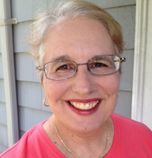IBC Finally Has A Diagnostic Code!
Did you know each medical issue has a code that impacts billing by a medical provider, impacts treatment, and impacts published statistics on the number of people diagnosed with a given medical condition?
Without an ICD (International Classification of Disease) code the doctor/healthcare provider needs to type-in “inflammatory breast cancer” into the patient record. That takes extra time when using an electronic system when typically, providers are choosing options from a ‘drop-down’ menu. Consequently, many IBC patients only have stage 3 or 4 {metastatic breast cancer} listed in their medical record! No wonder it’s hard to have accurate numbers for IBC!
Through the efforts of the IBC Collaborative (IBC Research Foundation, Milburn Foundation and S. G. Komen) we were able to petition for an IBC specific code. Dr. Kathy Miller (Indiana University) presented our position to the coding officials during a review. As a result, we now have not just ONE but THREE specific codes! These codes will make it easier for healthcare providers to document IBC in the patient medical record, and statistics for IBC will be easier to collect as well.
These are the three codes specific to inflammatory breast cancer:
C50.A0 Malignant inflammatory neoplasm of unspecified breast
C50.A1 Malignant inflammatory neoplasm of left breast
C50.A2 Malignant inflammatory neoplasm of right breast
These ICD codes are published and used daily in medical offices, hospitals, by insurance companies, and by others. This year 324 new codes have been added and will take effect Oct. 1, 2025. (learn more here)
https://www.cms.gov/files/document/fy-2025-icd-10-cm-coding-guidelines.pdf
Obtaining a specific IBC diagnostic code has been a priority for IBC Research Foundation for over 25 years, so we’re excited to celebrate this accomplishment! The combination of the new ICD codes with the diagnostic scoring tool (Inflammatory Breast Cancer (IBC) Scoring System – Susan G. Komen®) marks a major milestones for the IBC community benefitting patients in a multitude of ways.
–Ginny Mason, RN, BSN



